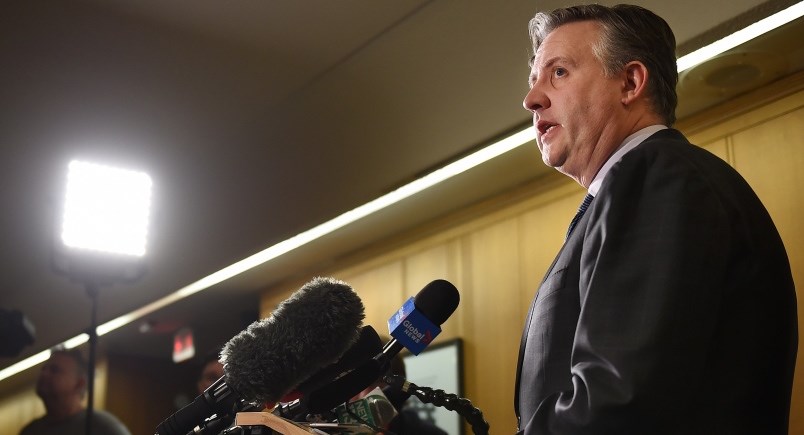Stewart reiterated his call Wednesday for financial assistance from the provincial and federal governments, saying he needs to know either way whether any money is coming.
“If they are not going to help, tell us,” he told reporters at his weekly briefing at city hall.
“If they are going to help, tell us. Don’t leave us hanging in the middle of this massive crisis.”
In recent weeks, the mayor has spoken with federal and provincial ministers and joined a regional and national push from mayors to seek emergency funds and tax relief measures for citizens.
Last week, he publicly requested the provincial government provide a $200 million injection of cash to offset losses accrued from closing community centres, libraries, pools and suspending parking enforcement.
Stewart said he heard over the weekend the money wasn’t coming, but continues to press the provincial government to help with other measures, including property tax relief for citizens and business owners.
Selina Robinson, B.C.’s Minister of Municipal Affairs, said in an emailed statement last week that she was aware of the financial state of B.C. municipalities, and is working to develop solutions to the crisis.
The city temporarily laid off 1,500 employees and expects more layoffs and cuts, if physical distancing measures continue to be in play for the near future.
The pandemic’s hit on city revenues, which could reach $190 million or more by year’s end, could be more severe if people don’t pay their property taxes.
The mayor dwelled on that fact Wednesday, referring to an independent online survey he released Sunday that showed 25 per cent of respondents could only afford to pay half of their 2020 property tax bills, while six per cent can’t afford any amount.
“We are not on the verge of bankruptcy, as some media outlets reported over the weekend,” Stewart said.
“I did not say that, and I’m not saying that now. But I think all mayors would reasonably agree their city finances would be devastated if property owners are not able to pay their full property taxes, as our research shows may be the case for up to 35 per cent of our residents.”
In B.C., roughly 80 per cent of local government operating budgets are funded by property taxes and utility fees. Fees from parking, community centres, recreation programs and permits augment that revenue.
He acknowledged the city has billions of dollars in assets, but said the “vast majority of it is tied up in real estate and other assets that are not easily converted to cash.”
The majority of that value is in land, he said, that has affordable housing, libraries and fire halls on it.
“In order to access these funds, we would need to sell off land — something that I believe is extremely shortsighted — not to mention how dumb it would be to try and unload assets in the middle of one of the worst global downturns in the past century,” said Stewart, taking the same line on budget surplus.
“That figure is largely made up of development contributions — funds that are restricted to capital projects and cannot be used for operating [budget].”
@Howellings



